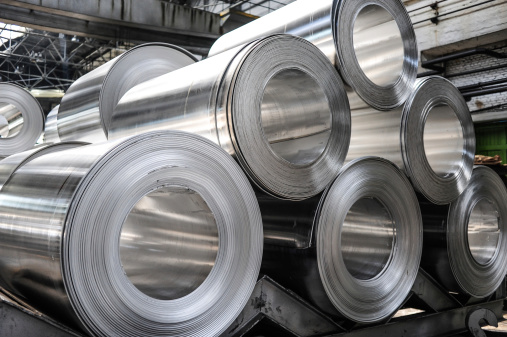Commodities & Metals
Why Merrill Lynch Threw In the Towel on Aluminum
Published:
Last Updated:
Big aluminum took a hit Tuesday morning when Merrill Lynch issued downgrades for both Alcoa Inc. (NYSE: AA) and Century Aluminum Co. (NASDAQ: CENX). The downgrades were the direct result of worsening fundamentals in the aluminum industry. Merrill Lynch did not stop with big aluminum, as Noranda Aluminum Holding Corp. (NYSE: NOR) received a not-too-favorable call as well.
Metals strategist Michael Widmer recently cut his aluminum price forecast and premium assumptions, noting a newly expected surplus of the metal versus a previously expected deficit. A strong U.S. dollar can drag the Midwest premium even lower, akin to the European premium, down 20% from its peak. Aluminum is still considered more defensive compared to other commodities.
Merrill Lynch detailed the issues with currency and China that will affect all aluminum companies:
We previously forecast a global deficit of ~1 Mt in 2015 estimates assuming China would not be a material net exporter. Yet Chinese exports have exceeded our expectations, and now imply a global 1 Mt surplus. We cut the 2015 aluminum estimate 10% to US$1819/t or $0.82/lb and lower the premium $0.01/lb to $0.16 (latest spot $0.22). The premium is paid on top of the quoted London Metal Exchange price for prompt physical delivery. Historically these figures reflected a “convenience yield” and delivery from the next closest delivery point. Recently premiums have been distorted by long warehouse queues.
ALSO READ: Is the Turnaround in Aluminum Giants Done?
For Alcoa, the brokerage firm cut its estimates based on the lower forecast price of aluminum. The 2015 earnings per share (EPS) estimate was decreased to $1.15 from $1.30, and the 2016 EPS estimate was moved to $1.15 from $1.55. Merrill Lynch downgraded Alcoa to Neutral and lowered its price target to $17 from $20, but the firm remains positive on the free cash flow and downstream growth.
Shares of Alcoa were down 5.9% at $14.29 in morning trading Wednesday. The stock has a consensus analyst price of $19.13 and a 52-week trading range of $11.61 to $17.75.
In the view of Merrill Lynch, Century Aluminum is currently the most leveraged in its coverage universe to the Midwest aluminum premium. Initially the strength over the past 12 months was impressive, but once the premium began to recede, shares fell roughly 25%. EPS estimates for 2015 were cut to $1.75 from $3.20 and 2016 EPS estimates were cut to $1.00 from $2.95. Merrill Lynch set its rating for the stock at Neutral with a price target to $23.
Century Aluminum shares were down 15.7% at $16.69. The consensus price target is $27.50, and the 52-week trading range is $11.94 to $31.75.
ALSO READ: A True Surprise in Global Gold Demand Trends for 2014, 2015 and Beyond
Noranda is expected to suffer from the falling forecasts of aluminum prices as well. Its 2015 EPS estimate was cut to $0.10 from $0.40 and the 2016 EPS estimate was cut to -$0.10 from $0.50. These estimates continue to assume 50% of Noranda’s power rate relief request is granted, which management anticipated to be $0.05 per pound, or $29 million pretax.
Shares of Noranda were down 8.3% at $2.93. Its consensus price target is $4.95. The 52-week trading range is $2.90 to $5.64.
The thought of burdening your family with a financial disaster is most Americans’ nightmare. However, recent studies show that over 100 million Americans still don’t have proper life insurance in the event they pass away.
Life insurance can bring peace of mind – ensuring your loved ones are safeguarded against unforeseen expenses and debts. With premiums often lower than expected and a variety of plans tailored to different life stages and health conditions, securing a policy is more accessible than ever.
A quick, no-obligation quote can provide valuable insight into what’s available and what might best suit your family’s needs. Life insurance is a simple step you can take today to help secure peace of mind for your loved ones tomorrow.
Click here to learn how to get a quote in just a few minutes.
Thank you for reading! Have some feedback for us?
Contact the 24/7 Wall St. editorial team.